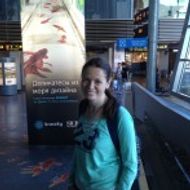- A
- A
- A
- АБB
- АБB
- АБB
- А
- А
- А
- А
- А
Post-postdoc Trajectories
IIASA Postdocs / Flickr
Five alumni of the HSE University Postdoctoral Fellowship reflect on their experiences during their postdoc years, and on the role HSE University has played in their development as scholars. They currently work at HSE University, the University of Florida, and the University of Bremen.
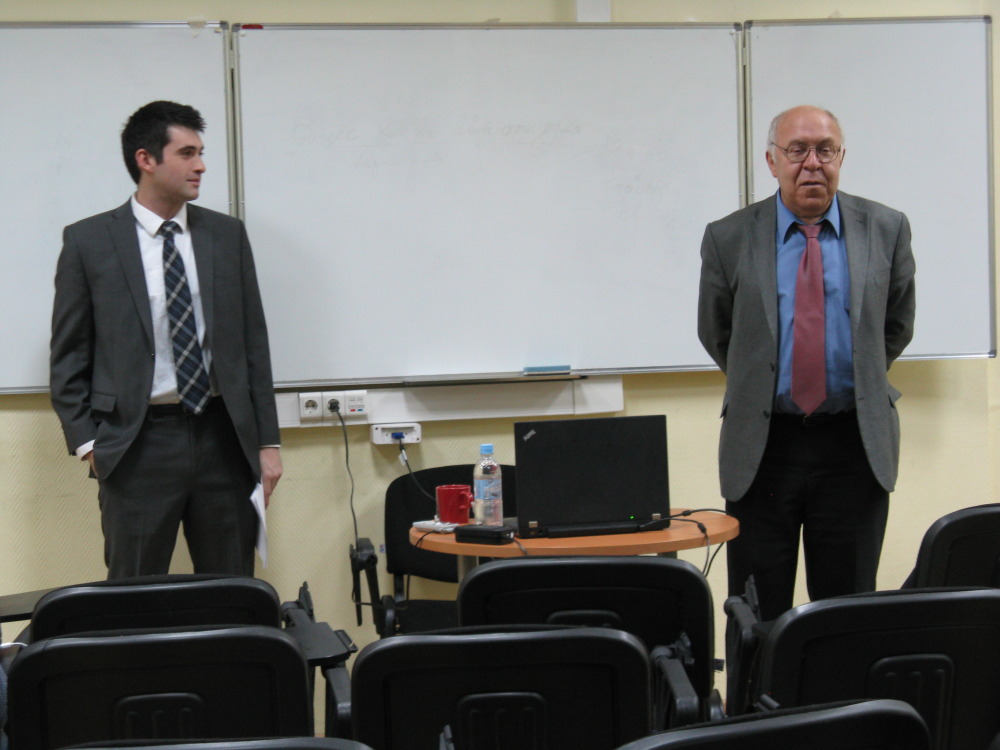

SETH BERNSTEIN
After graduating in 2013 from the University of Toronto (Canada) with a PhD in History, Seth took on the role of postdoc at the HSE International Centre for the History and Sociology of World War II and Its Consequences. He has worked as an Assistant Professor of History at HSE University, and since 2020, he has been Assistant Professor at the University of Florida (USA).
In 2010, through two of my PhD mentors at the University of Toronto, who work on Holocaust history and the history of the Soviet Union, I learned about this specific postdoc. It was the first year of the HSE international postdoc programme. Then I renewed the postdoc with the centre for two more years.
The topic I applied to work on was an expansion of my dissertation about Soviet youth culture under Stalin, specifically the Komsomol in the 1930s and 1940s. The main argument of this work was that the Komsomol became a militarised organisation, and the bigger transformation of the Soviet Union was not so much based on Marxist ideology but on the prewar conditions of 1930s and the war with Nazi Germany. The connection of my topic to the centre’s mission was probably the main attraction of my candidacy. Another factor was that I came out of graduate school having two articles, one about the WW2 period.
There was a huge difference between the three years. The first year, we had just a small room for four of us. Then, the centre won an international lab grant and expended considerably. In the second year, it grew into perhaps a dozen people, including premier international scholars such as Dr David-Fox. Then, it became more internationalised in my third year and grew to one of the premier centres for modern Soviet and Russian history in the world. I was there at the ground floor and, I hope, helped in this expansion.
I knew how a Russian university works before I arrived in 2013; I taught English as a Fulbright ETA in Ryazan and Rostov in 2006-2008. One aspect that I noticed when I arrived in HSE University was that I was used to having a supervisor who had been looking at my work and now I came to a place where I was more left alone. When I did reach out, I received a lot of help and feedback, but I had to learn how to do that. A unique thing about the HSE postdoc is that it is embedded in Russian academic culture and you sense that you are part of a team, while in the US or Canada, there is less of sense of belonging at the centre.
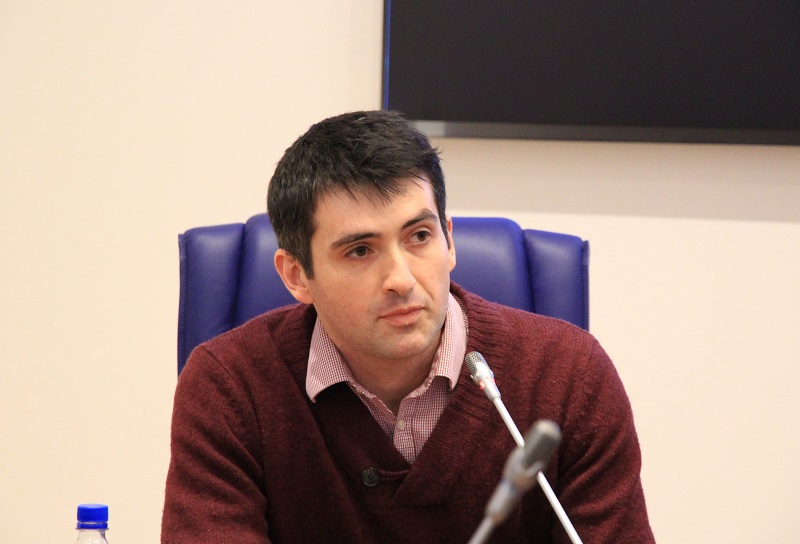
The first two years I was working on my first book, which came out in 2017 - Raised under Stalin: Young Communists and the Defense of Socialism (Cornell University Press). After that, I began to work on the next project, and the centre sent me to work in archives and libraries in Washington, DC, Toronto, and Kyiv. It really solidified my second book.
Beyond my book, the work that I am most proud of that came out of this period was a translation of the book Agents of Terror: Ordinary Men and Extraordinary Violence in Stalin’s Secret Police. It is a case study by Dr Alexander Vatlin, Moscow State University professor, based on arrest files of people from Kuntsevo District during the Great Terror. He was able to recreate what happened with the secret police at the very ground level. During the translation process, we e-mailed back and forth, met and became friends. The book has done well, too, and it is now getting assigned in classes in the USA.
Towards the end of the postdoc, I translated Professor Liudmila Novikova’s book An Anti-Bolshevik Alternative: The White Movement and the Civil War in the Russian North, and this was probably the most extensive collaboration I had. That book also has gotten excellent reviews.
Almost every week we hosted someone from Russia or abroad. It was practically a mandatory pitstop during your archival trip to give a talk at the centre. The thing I miss the most about being there is that the centre is one of the great meeting places of Russian history in a way that Florida cannot be. I still keep in touch and I am thinking about bringing some of my previous colleagues here through getting a Fulbright grant.
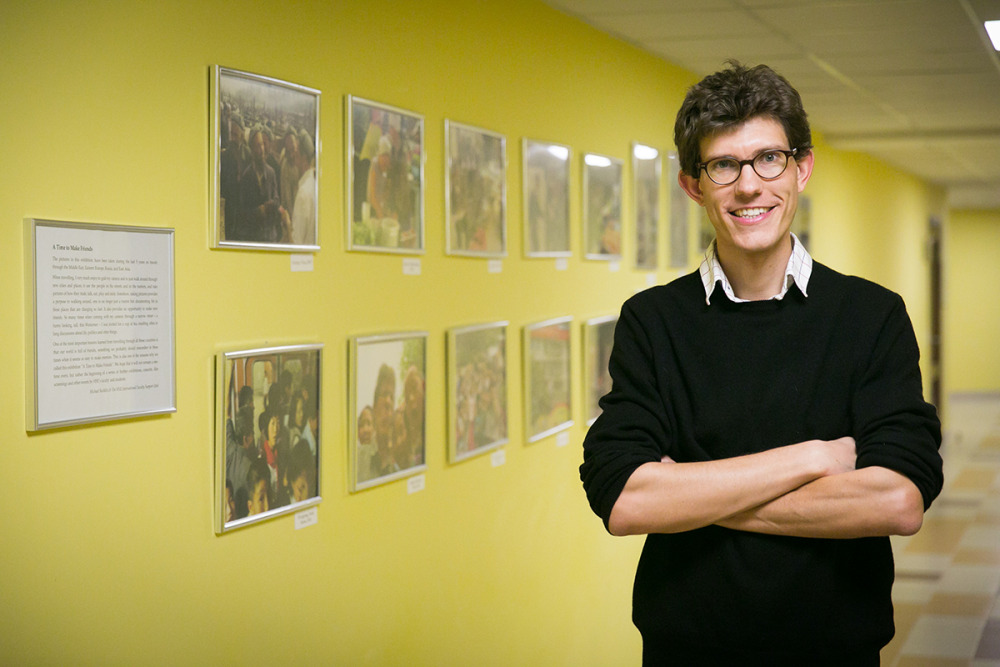
MICHAEL ROCHLITZ
After finishing his Master’s studies in Paris and London and his PhD in Economics at IMT Lucca (Italy), Michael did a postdoc with the HSE International Centre for the Study of Institutions and Development (ICSID). Later, he became an Assistant Professor at the HSE School of Politics. In 2017, he left for LMU in Munich and since 2019, he has been Professor of Institutional Economics at the University of Bremen.
During my PhD, I was probably a bit naïve. I did not have a clear strategy of how to start a career in academia, and was rather thinking about becoming an adventurer, or working in international development. In the last year of my PhD, I met Andrei Yakovlev, the head of ISCID, at a conference in Suzdal who told me about the possibility to do a postdoc at HSE University.
Being a postdoctoral fellow at ICSID was a privilege and an opportunity. At the time, a group of international scholars was working closely with their Russian colleagues, spending several months a year in Moscow. From them I learned a lot about how academia works, much more than during my time as a PhD student. Dr Yakovlev became a real mentor to me, and we still work closely with him and our colleagues from ICSID. Every year in June, we organize a major conference in Moscow, and in the fall - a workshop in a partner institution somewhere else (Munich in 2017, Abu Dhabi in 2018, Bremen in 2019). We hope to organize an event next year and to celebrate ICSID’s 10th anniversary.
We also continue to cooperate in research. In December 2020, we submitted a joint grant proposal with Dr Yakovlev and Dr Libman, for a project to study social mobility in the bureaucracy in Russia, China, and the Soviet Union. Last September, Dr Yakovlev became a Research Ambassador at the University of Bremen, a position with the aim to promote academic and scientific exchange between Russia and Germany.
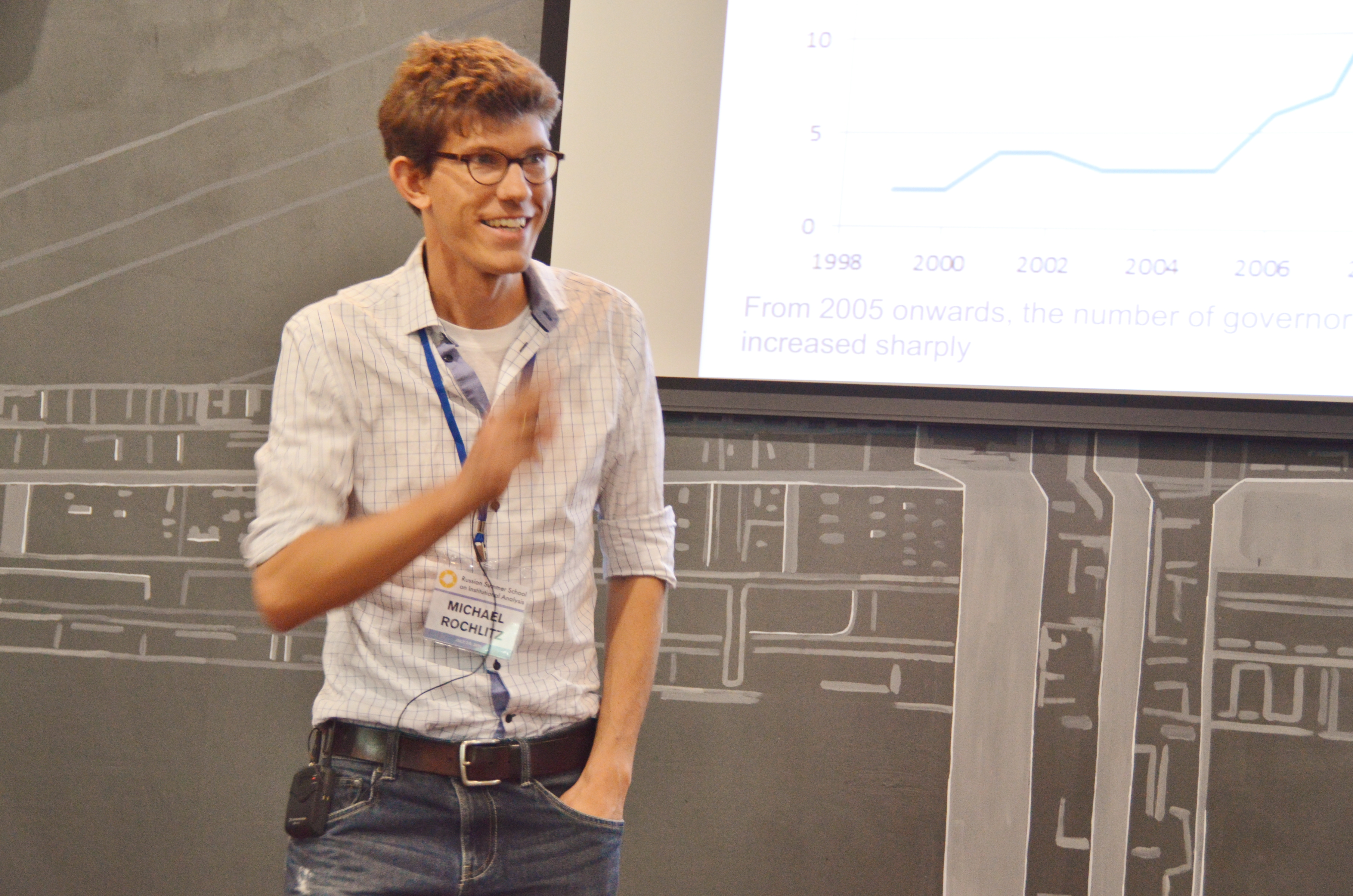
I never felt like a stranger in Russia. I started studying Russian in 2002, and by the time I was spending the last year of my PhD as a visiting lecturer at Ural Federal University in Yekaterinburg in 2012, I was able to communicate freely. During my time at HSE University, I often took a train during holidays or weekends and went to places like Murmansk, Arkhangelsk or Vorkuta, and then posted my pictures on Facebook, or on my blog ‘dustyroadseconomics’. Even today, when I come to Moscow it practically feels like the city where I am most at home, probably because the time from 2013 to 2017 was the longest period during the last 20 years that I have ever stayed in one place.
My ambition is to build a centre of institutional economics with a particular focus on the post-Soviet region, Russia, and, probably, China. There is still a lack of political economy research on Russia in Germany, which is surprising, if you consider how important Russia is for Germany, both politically and economically. We have started to build such a centre at the University of Bremen. At the moment, we have one postdoc, four PhD students and two research assistants. We have a number of grant applications under consideration, and we hope to grow further during the next couple of years.
It is a new experience to have your own research team, and I really enjoy it. What I try to communicate to my both PhD students and postdocs is that they should have a certain sense of adventure and discovery when doing research. This is something I also need myself to remain motivated. It also helps that we are not that far apart age-wise. My PhD students are in their late 20s or early 30s, and I am 39. Sometimes, we meet for a drink or play board games, for example, Carcassonne, a game where you construct a medieval city.
Today, I often think back to my time at HSE University. Without my experience as a postdoc at ICSID, I would probably no longer be in academia. With my colleague Susanne Schattenberg, a historian, we are teaching a class together on politics of memory, and we hope that from next year onwards we can combine our class with a fieldtrip to Russia. And why not having joint classes or summer schools with HSE students? Let’s see what the future brings.
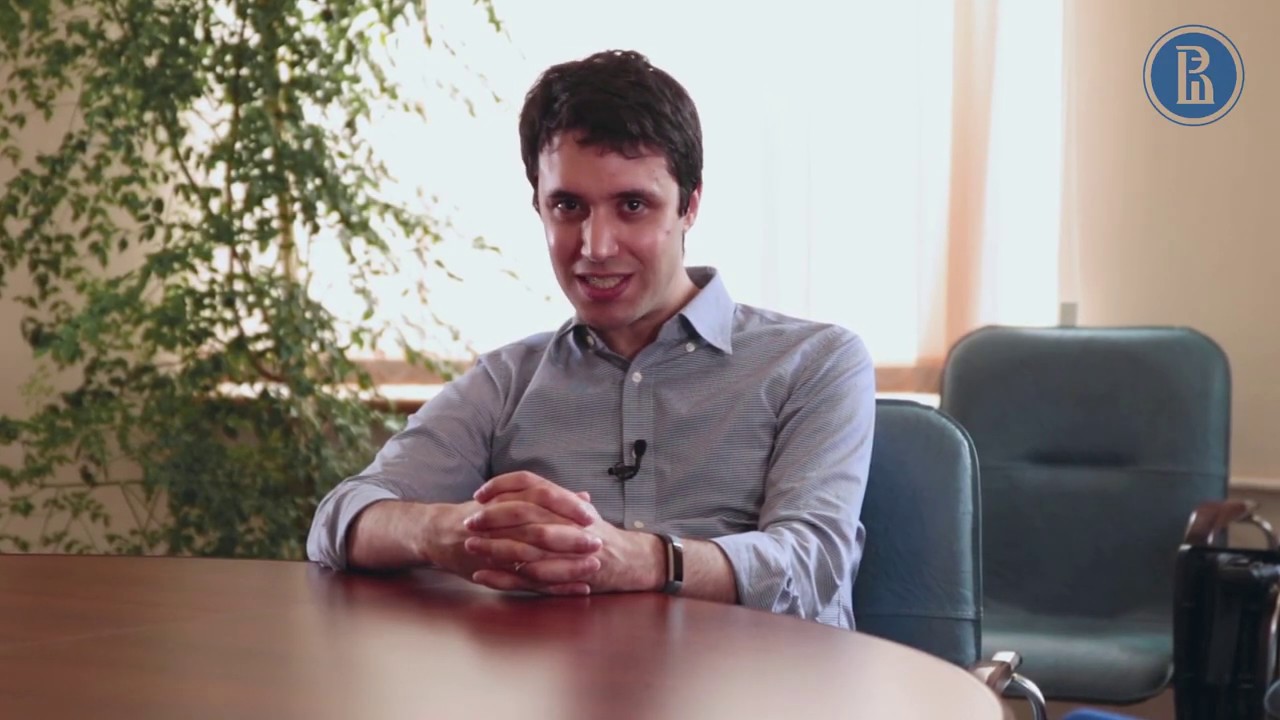
ISRAEL MARQUES
After graduating with his Master’s and PhD in Political Sciences in 2016 from Columbia University (USA), Israel did a postdoc with the HSE International Centre for the Study of Institutions and Development (ICSID). He is now an Assistant Professor at the HSE School of Politics and Governance.
By the time my postdoc started, I had been working for HSE University for four years and really liked it. During my PhD studies, I began as a research fellow and spent much of my time in Moscow, an arrangement whereby I would work for Dr Yakovlev’s centre in exchange for the possibility of doing fieldwork in Russia.
I went from working on social policy in Russia during my PhD to a project on vocational education, as an important component of welfare state policy during my postdoc. We had already started thinking about it with Dr Remington, who is a leading research fellow at ICSID, when I was finishing my dissertation. We understood that this topic is of interest to Russian policymakers, as well as the Russian and Western research community, and we were able to develop it into a RNF grant proposal with Dr Yakovlev. The three-year project is finished, but the publications are still ongoing. Last year, we had papers published in Europe-Asia Studies and European Journal of Political Economy.
At the Faculty of Social Sciences, postdocs are closer to faculty members. They can provide input to specific projects, as well as into the general workings of the subdivision where they are. The most obvious way a postdoc differs from being a faculty member is that I teach students now, whereas before I would only consult with them. Rather than helping them because they were interested and I knew something about their topics, now I am helping them as their academic supervisor.
At HSE University, students ask questions that I find useful for my own development as both a teacher and a scholar. For example, I recently won a Faculty of Social Sciences research grant. We are looking at service provision across Russia’s regions and people’s attitude towards the digitalization of services. This grant was put together with my then Master’s student, who is now my PhD student and a core team member on the project. This is the most clear-cut example of this type of interaction, but not the only one. I always use my classes as an opportunity to get students interested in the ICSID projects and, more broadly, to help students to realize how much they can contribute to research.
One of the things I found valuable as a postdoc is the fact that HSE University was very interested in helping me succeed but also in signalling to the outside world that ‘this is what someone good can do with the resources we provide’. As a postdoc, I was able to use these resources to do many presentations at conferences and for a popular audience. People have preconceptions and negative stereotypes about teaching and doing research in Russia, and this can be a challenge, particularly for recruiting postdocs. Therefore, it is important for us to go out, present the work we are doing, show that academic life in Russia is robust, and push back on these stereotypes.
If someone says my achievements during the postdoc are solely thanks to my work at Columbia University, I would refute. By the time I was a postdoc I had been at HSE University for four years already. This more or less about the same amount of time I had spent at Columbia. I started working on the vocational education project as a graduate student of Dr Remington, but he was also at HSE University at the time. Could this project have happened without HSE’s support? Absolutely not!
Broadly, I would not underestimate the amount of time, energy and resources you get as a postdoc. The goal of a postdoc is to give scholars the time and space to develop into the professional they would eventually become without needing to worry about job security, teaching, and other issues. The HSE’s postdoc programme provides exactly this type of time and space for its participants.
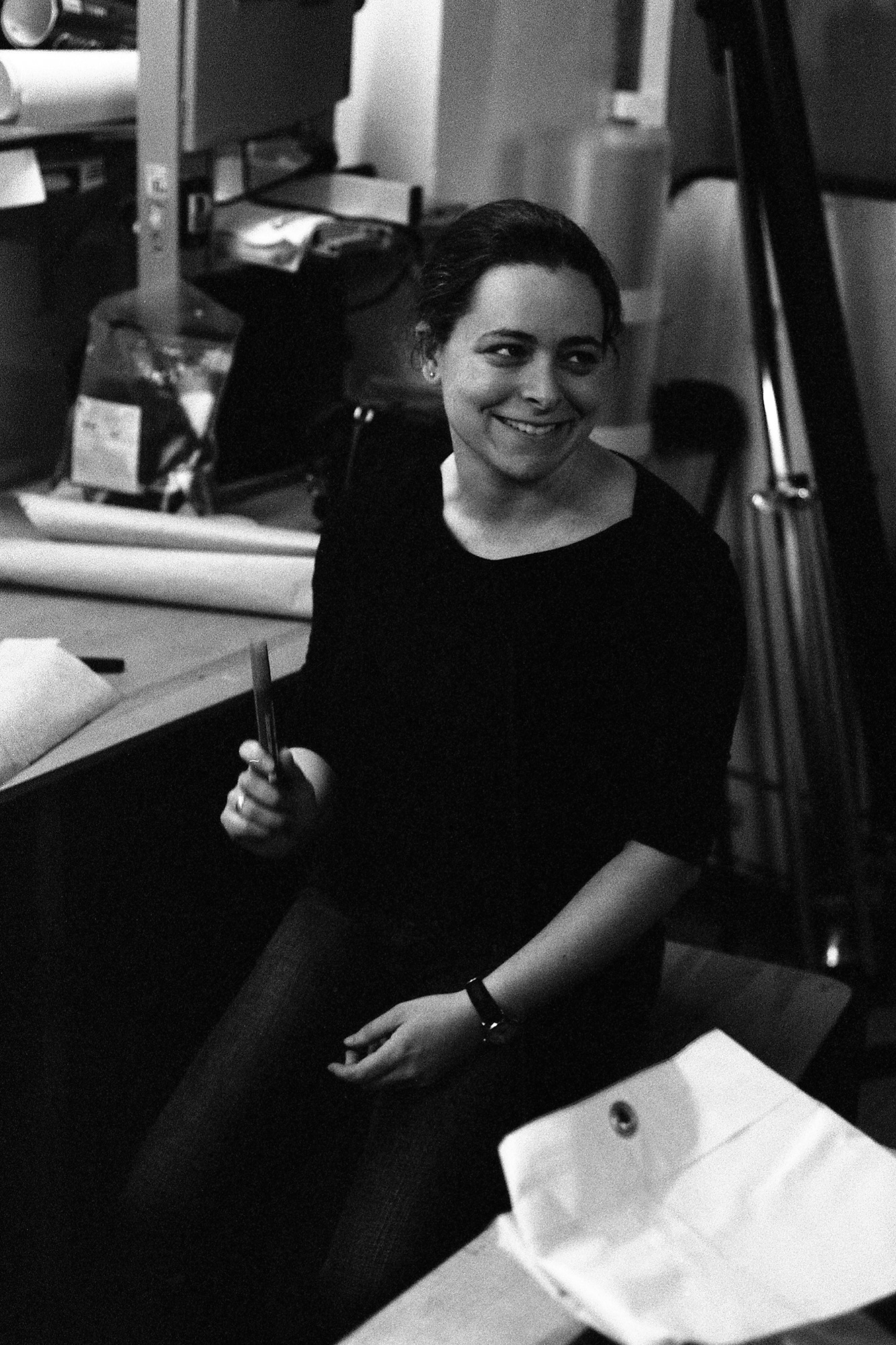
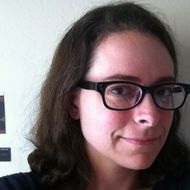
Dr ANGELINA LUCENTO
After graduating with an MA and PhD in Art History from Northwestern University (USA) in 2014, Angelina did her postdoc with the HSE International Centre for the History and Sociology of World War II and Its Consequences. She is now an Assistant Professor at the HSE School of History.
My degree is in art history; I work on Russian modernism of the 20th and 21st centuries. My postdoc allowed me the time I needed to work in archives, to prepare and publish articles and to begin to remake part of my dissertation into a book manuscript publishable by a major university press in the United States or the UK.
The nice thing about HSE postdoc is that you are required to give presentations. That is how you develop skills, which help you produce articles that are publishable in Web of Science. You do not come out of graduate school, knowing how to do it, you only acquire these skills through trial and error.
While I was at the centre, I was also extremely glad to do general public presentations. I always got many questions from the audience; it was such a delight to experience their interaction and enthusiasm. This stuff belongs to you, and there is a lot to be extremely proud of. Yes, avant-garde was crazy and we know now that not everything worked, but it is not the point. The point is innovation, as they are the most creative thinkers of the 21st century.
Sometimes, you meet people who say ‘oh, my great grandfather studied at’ or ‘my great grandfather is Alexey Gastev’. You would not be able to do it if you were not in Russia. Sometimes, you have these babushki in their 80s saying ‘no, no, I was 10 years old in 1935 and I can tell you it’s not what it looked like’ or ‘I used to work in the party administration and I can tell that’s not how it happened’ or ‘Ivan Matsa was my professor at MGU and he always said this’.
Oleg Vital’evich and Liudmila Gennadevna[1] also supported me during my time at the centre when I co-organised a major international conference on Soviet photography with another postdoc from the centre and it was successful – we had participants from the former Soviet Union, New Zealand, and the USA. Many good ideas came out of it. Moreover, several articles went to various major journals.
When we are able to fully return to campus and international travel resumes, I am looking forward to attending the centre’s offline lectures once again, and am especially looking forward to the informal meetings afterward where we are able to discuss ideas with international scholars one-on-one.
[1] Dr Oleg Budnitskii, director, and Dr Liudmila Novikova, deputy director (HSE International Centre for the History and Sociology of World War II and Its Consequences)
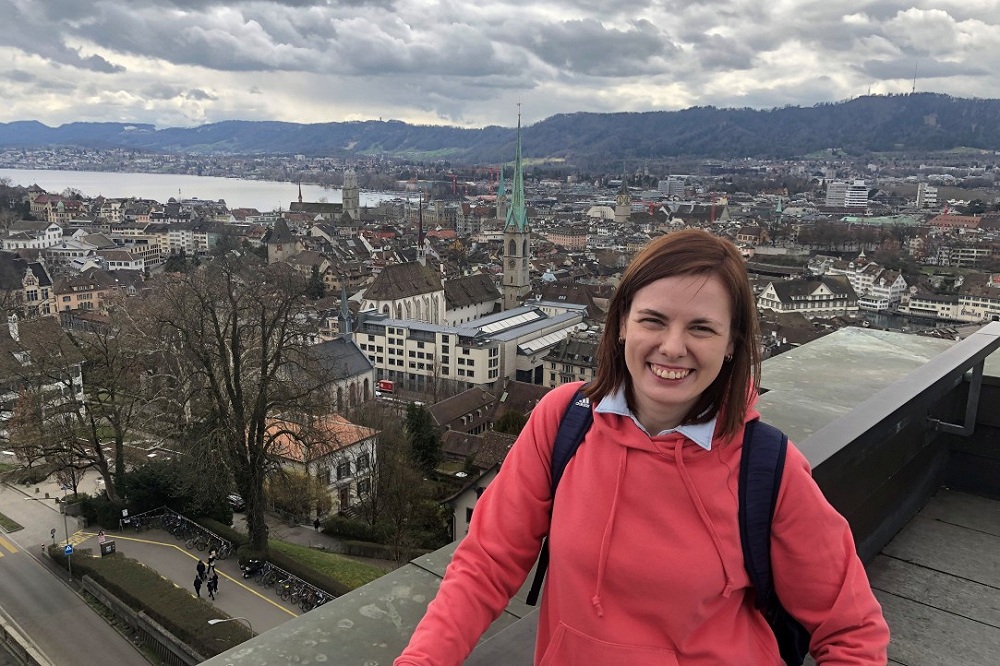
ALEXANDRA SKRIPCHENKO
After graduating in 2012 with a PhD from the Faculty of Mechanics and Mathematics at Moscow State University, Alexandra did her postdoc in France. She returned to Moscow as an HSE University Postdoctoral Fellow, became an associate professor at the HSE Faculty of Mathematics, and in 2020 - its dean.
When I was a PhD student, I took part in the summer school in Trieste, where I met Artur Avila and Jean-Christophe Yoccoz, the Fields Medalists. I had a math problem that had not been solved for a while. It was in regards to how electron move in metal, which is affected by a magnetic field. I talked to them twice, and both times the problem was not solved, but they made me ‘a postdoctoral proposal’. I also won a competition of the Association of Mathematical Faculties of France, which provided me with a salary and the opportunity to work in any of the universities belonging to the consortium.
I had two supervisors – Dr Artur Avila, a French-Brazilian mathematician, and Dr Anton Zorich, a Russian-French mathematician. Artur and I solved math problems together, but culturally we were alien to each other. The opposite was true with Anton as we spoke Russian. Pascal Hubert, professor at Aix-Marseille Université, did a lot for my integration too; his children taught me to speak French. He remains my favourite co-author. I now have grant, where we are the principal investigators from the Russian and the French sides.
During that postdoc period, many things were conceived that continue to develop. This would have been hard to achieve remotely. When I arrived in France as a PhD student, I was not yet very good at talking about my mathematics. I remember my first seminar in Marseille - it was a disaster! It took a lot of effort from the people who worked with me to see the potential in our partnership. I am not sure if they could do it digitally when the temptation to turn off the camera and go for tea is relatively strong. We wrote our first article with my former PhD supervisor remotely while I was in France, but we had spent six years together before.
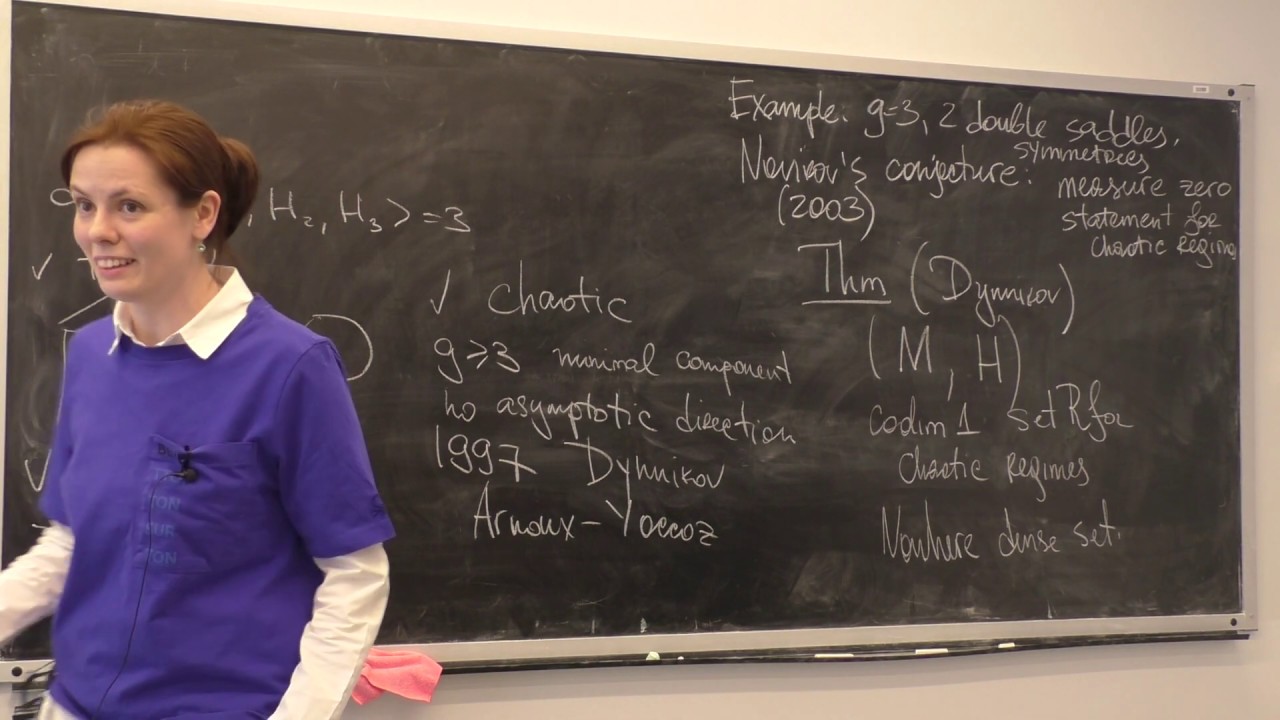
I wanted to expand my research contacts and learned about the HSE postdoc competition. Vladlen Timorin, who was a dean of HSE Faculty of Mathematics before me, confirmed that everything works ‘like in the West’. I decided that, if they accept me I would go home, otherwise I would stay in France. In the end, they invited me, and my mother was delighted. However, upon my return to Moscow, I won the Mechnikov scholarship and went back to France for several months, this time - as an HSE postdoc.
My students do have the feeling of being involved in a global agenda because, at least once every couple of months, they see a revered or even a star international academic. Anton visits regularly since he is a Muscovite himself, and we co-teach a module called 'Modern Dynamical Systems' jointly with Skoltech. Artur came to Moscow only once, as he does not like the cold. Once every two years, someone comes in under the HSE’s postdoc programme.
However, we have not been very successful in convincing them to stay longer. They perceive the possibility of coming to Russia as an interesting research endeavour and a short-term ‘extreme light’ experience, but they are not ready in terms of their family and career plans. I myself felt the same for France. I was sure that I could go home soon after I arrived, but once I learned to speak the language, I realized I could stay. However, I made friends, happily returned home and never regretted that.
Mathematicians can work alone, but it is critical to have a stimulating environment and be able to talk about your ideas. I said earlier that I had a problem with which I came to great people. It seems that we solved this task this year in a group of five, and two teams, Russian and French, sewed the two pieces of this puzzle together.
